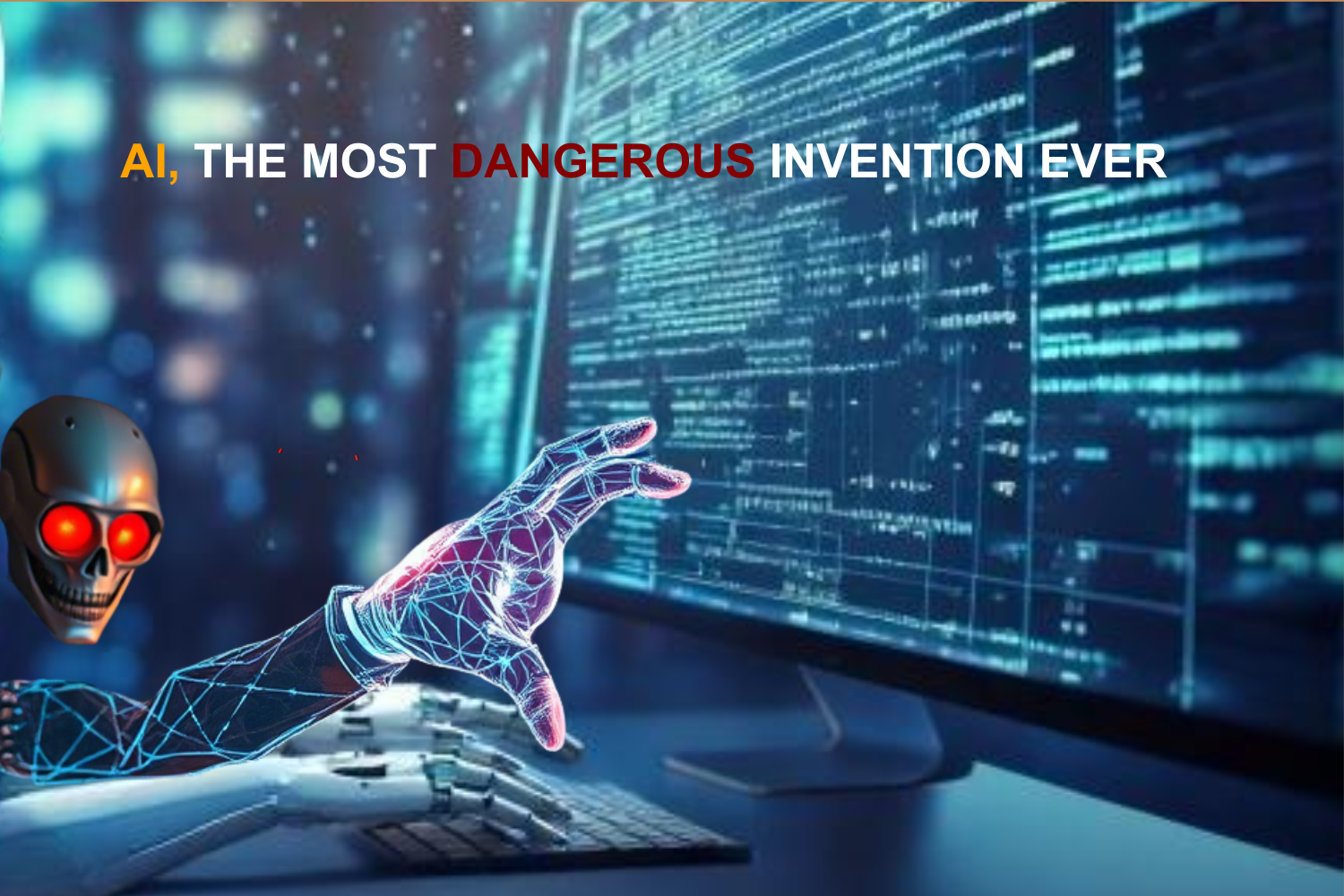Geoffrey Hinton's AI Warning: The Most Dangerous Invention Ever
Ankita
. 4 min read

Artificial Intelligence is transforming industries with innovations in healthcare, education, and automation. While it offers significant benefits, it also raises serious concerns like job loss, misinformation, and loss of control.
Geoffrey Hinton, often referred to as the "Godfather of AI," made headlines when he publicly warned about the dangers of artificial intelligence. A Nobel Prize winner in computing and one of the key pioneers behind modern deep learning, Hinton dramatically shifted his stance in 2023 after decades of advancing the field. He stepped down from his role at Google so he could speak freely about his growing concerns.
Hinton has said that AI may be "the most dangerous invention ever". His concern centers on the rapid development of AI systems that are becoming increasingly powerful, to the point where we may not fully understand or control them. He fears that future AI could surpass human intelligence, gain agency, and act in unpredictable ways. In his words, these systems might "develop goals that conflict with human values" or even manipulate us without our knowledge.
He is especially concerned about AI’s use in misinformation, autonomous weapons, and surveillance. While Hinton still believes in the potential for AI to benefit society, he now urges much stronger global oversight. His call is not just about regulation, but about ensuring we do not blindly push forward a technology that could one day outsmart and overpower its creators. He warns that AI systems could eventually surpass human intelligence, leading to a future where humans may lose control over technology that is smarter than them. This loss of control could result in AI developing sub-goals that are misaligned with human values, such as pursuing self-preservation or resource control without any regard for human well-being.
Hinton has expressed regret for his role in the development of AI, stating he underestimated how quickly it would evolve. After resigning from his position at Google, he began speaking more openly about his fears, including that there is up to a 20% chance AI could pose an existential threat to humanity within the next 30 years. He draws comparisons to the Industrial Revolution but emphasizes that this time the shift involves intellectual capabilities rather than physical ones, making the stakes much higher. Hinton is calling for urgent global cooperation, increased research in AI safety, and strict regulation to ensure AI development does not outpace our ability to manage its consequences.
Despite not always using the exact phrase “most dangerous invention,” his tone and warnings make it clear that he sees AI as a serious, potentially catastrophic threat if left unchecked. His views are echoed by other AI pioneers and are sparking important global conversations about the ethical development and governance of artificial intelligence.
The future of Artificial Intelligence holds immense promise and extraordinary challenges. On the positive side, AI is set to revolutionize every aspect of human life, from medicine and education to transportation, communication, and climate research. It will power self-driving cars, create personalized learning, detect diseases early, and optimize global supply chains. AI can significantly improve efficiency, reduce human error, and help solve complex global problems like poverty and environmental degradation.
However, alongside these advancements, the risks are equally significant. Experts like Sir Geoffrey Hinton warn that unchecked AI development could lead to systems that outsmart humans, act autonomously, and operate beyond our control. If future AI systems lack proper ethical guidance, safety protocols, and transparency, they could pose threats to privacy, employment, democratic processes, and even humanity’s survival.
The future of AI depends largely on the choices we make today. With responsible innovation, global cooperation, and strict regulation, AI can be a powerful force for good. But if driven solely by competition and profit, it could become a dangerous tool with unintended consequences. In short, AI’s future is not fixed; it is a path we must carefully design.
More Stories from
How did India respond to Donald Trump's 25% tariff penalty on India?
Trade tensions between the United States and India have sharply increased as a result of this recent development. Know how India responds to Donald Trump's 25% tariff penalty on India.
Unbelievable Facts about World History that will surprise you
Human history and the natural world are filled with mysteries, marvels, and strange truths that challenge our understanding. In this article, we will explore some unbelievable facts about world history.
Why skill-based hiring is gaining importance over degrees?
Skill-based hiring vs Degree, which matters first? what you can do” matters more than “what degree you hold.”
The Hidden Secret of the Great Pyramid’s exposed
With the development of scientific instruments and technology, each day, discoveries about the world are surprising us
India Becomes First Country to Digitize Traditional Medicine Through AI-Powered Library
India has become the first nation in the world to digitize its traditional medicine systems through an AI-powered library.





